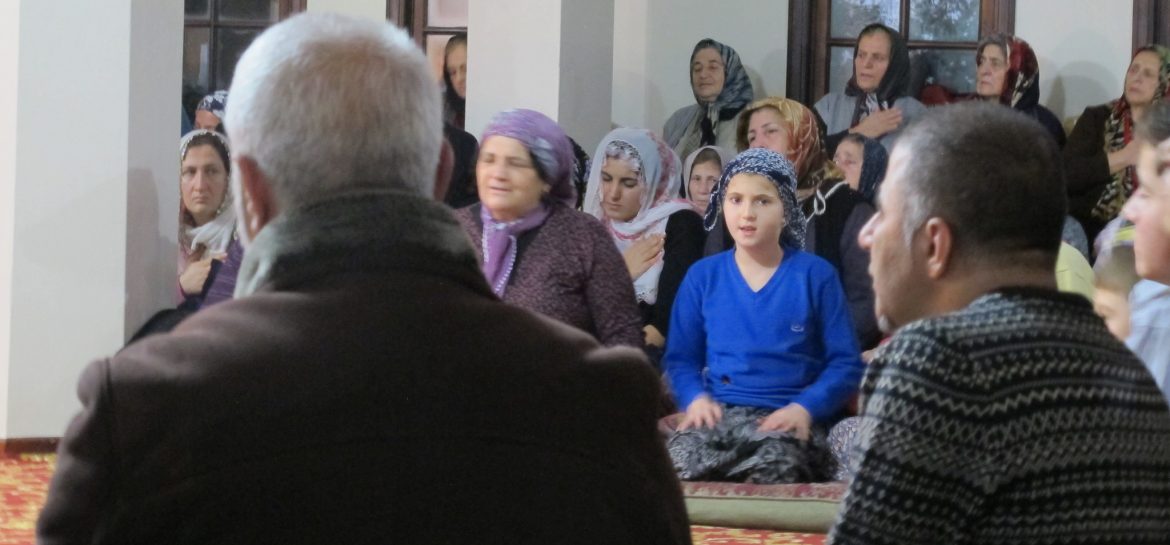Turkey’s Alevis beholden to politics

For Al Jazeera English:
Turkey has ruled to recognise Alevis’ places of worship but there are worries over the outcome of this decision.
Along a road overlooking a scenic valley in the Turkish Anatolian heartland is a series of giant grainy black and white photos; shackled men being led away, families huddling in bare mountains, surrounded by armed soldiers.
The memorial depicts a 1938 massacre of Alevis, an event that serves as a stark example of just how far Turkish society needs to go to understand this minority of about 12 million.
Most Alevis in Turkey are Kurds who speak Kurmanji or Zazaki, and follow a tradition that mixes Anatolian folk practices and Shia Islam. It is distinct from Arab Allawism found in neighbouring Syria.
In response to a ruling by the European Court of Human Rights on December 2, the Turkish government has announced plans to recognise Alevi gathering places, or “cemevis”, as places of worship.
But many Alevis themselves fear the changes will end up exposing their faith to further domination by Sunni Islam.
Continue reading here.